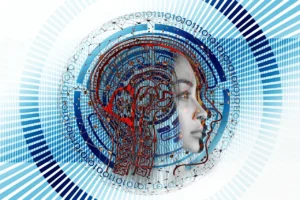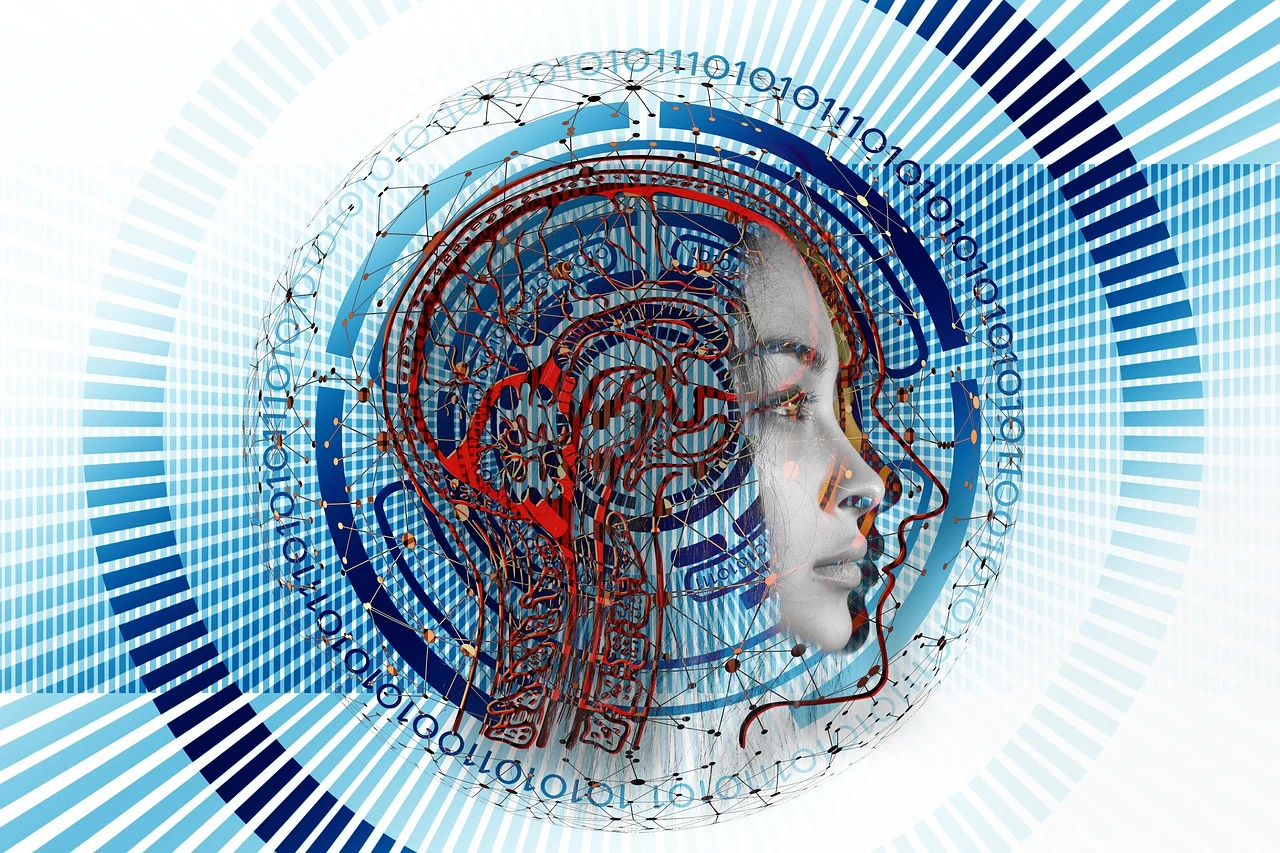Reinventing business with a future mindset … anticipatory living and shapeshifting organisations, meta systems and fractal growth loops … 10 radical pathways to more enlightened business transformation
July 10, 2025

Business reinvention has always been essential. From IBM’s pivot from hardware to services, to Disney’s evolution from animation studio to entertainment empire, to Mercado Libre’s leap from e-commerce into fintech, companies that adapt to changing times thrive while others fade. But in the coming decades, reinvention will no longer be occasional. It will be continuous, systemic, and existential.
The world is being reshaped by forces more profound than ever before: climate breakdown, exponential technologies, demographic realignments, shifting geopolitics, and cultural revolutions. Old, linear approaches to strategy and incremental transformation are insufficient. The challenge and opportunity is to reinvent at the scale of systems, not products; to shift business models as fluidly as water; to create futures that are regenerative, not extractive.
- Megatrends 2035: the 6 dramatic forces shaking-up every market, by Peter Fisk
- Business Reinvention: Lamborghini was a tractor company, Samsung was a grocery store, by Peter Fisk
- 10 Big Ideas for Business Reinvention: strategy to organisation, culture and performance, by Peter Fisk
In developing my latest book, The Reinvention Playbook, I explore 10 next-generation ideas for business reinvention — bolder, stretching concepts that will define the business landscape of tomorrow. Each idea is illustrated with cases, emerging signals, and speculative scenarios that point to where reinvention might lead:

1. From Ecosystems to Meta Systems
Ecosystems are already mainstream. The next step is meta-systems — companies orchestrating multiple ecosystems across sectors, creating value webs that shape whole societies.
Take Singapore’s Smart Nation initiative, where government, telcos, banks, and startups are creating a “city-as-a-platform” that integrates transport, health, education, and payments. Or Tencent, whose WeChat app is less an ecosystem than a national infrastructure — blending messaging, banking, entertainment, commerce, and even governance.
The stretch scenario: imagine a future operating system for daily life, where one company (or coalition) manages your healthcare, finances, energy usage, education, and mobility seamlessly. Rather than “super-apps,” think super-societal platforms — an Uber, a Tesla, or a Microsoft that doesn’t just serve markets, they’ll compete to define the operating systems of daily life.
2. From Purpose to Regenerative Systems
Purpose-driven reinvention evolves into regenerative business — actively restoring communities, nature, and trust.
The 2010s were defined by the rise of “purpose” and closely associated with sustainability as a core intent. Companies like Patagonia declared they were in business to “save our home planet.” Unilever, under Paul Polman, proved that doing good could align with profitable growth. But tomorrow, purpose alone will not be enough.
The frontier is regeneration: not just reducing harm, but actively repairing and restoring systems. Interface, the carpet maker, has pioneered regenerative design with factories that capture carbon and produce clean water. KlimaDAO, a decentralized finance protocol, monetizes carbon sequestration and channels capital into climate-positive projects.
The stretch scenario: businesses will measure success not by revenue growth, but by net-positive contribution — restoring forests, rebuilding trust, replenishing communities. A future retail chain might not just offset its footprint but operate as a distributed reforestation engine, where every purchase directly funds ecological repair. The business of the future could be a planetary healing machine.
3. From AI-Enabled to Cognitive Enterprises
Not just AI-enabled, but fully cognitive organisations where decision-making, creativity, and execution blur between human and machine.
Today, companies scramble to embed AI in workflows — smarter chatbots, predictive analytics, generative design. The next leap is the cognitive enterprise: an organization that thinks, learns, and reconfigures itself in real time.
JPMorgan already uses AI to reimagine risk, compliance, and customer insights. DeepMind’s AlphaFold cracked protein folding, accelerating biology by decades. XtalPi, a Chinese startup, uses AI to invent molecules for pharmaceuticals.
The stretch scenario: strategy itself becomes autonomous. Imagine a company that constantly senses markets, generates options, runs simulations, and deploys new business models algorithmically. Humans set direction, but the enterprise behaves like a living, cognitive organism. In such a world, companies no longer plan — they evolve.
4. From Hyper-Personalization to Anticipatory Living
Moving beyond tailoring to anticipation: businesses that sense needs before customers articulate them.
Personalization is now table stakes — Spotify playlists, Netflix recommendations, Nike By You shoes. The future is anticipation: organizations predicting and choreographing life needs before they arise.
Amazon anticipates your shopping list, often before you realize you need refills. John Hancock Insurance in the U.S. offers policies linked to wearables, adjusting premiums dynamically based on your health behaviors.
The stretch scenario: imagine a predictive healthcare ecosystem where your insurer, hospital, and grocery provider co-manage your wellbeing. Your fridge orders the right foods, your wearables trigger interventions before illness, your employer optimizes work to reduce stress. Reinvention shifts from personalization to life choreography — business as a partner in writing your future script.
5. From Business Model Fluidity to Shapeshifting Organisations
Future companies don’t just adapt business models; they morph their entire form — shifting from company to community to protocol.
Companies used to anchor themselves in a single model: IBM sold hardware, Adobe sold software licenses, Spotify sold subscriptions. But fluidity has become the norm: Adobe shifted to SaaS, Spotify layers freemium, subscriptions, and marketplace services.
The frontier is shapeshifting organizations — entities that morph not only their business model but also their very structure. DAOs (decentralized autonomous organizations) form, deliver, and dissolve like digital organisms. GitLaboperates fully remotely, with governance distributed across thousands of contributors.
The stretch scenario: tomorrow’s companies may act like liquid entities, sometimes corporations, sometimes communities, sometimes protocols. Reinvention will mean dissolving the traditional boundaries of ownership, governance, and identity — the company becomes a temporary constellation of capabilities around a mission.
6. From Sustainability to Climate Engineering
Not just “net zero,” but businesses solving systemic planetary challenges through radical innovation.
For decades, “sustainability” has meant efficiency: reducing waste, energy use, or emissions. That is no longer sufficient in a world of accelerating climate breakdown. The next generation will see businesses as climate engineers — actively reshaping Earth’s systems.
Climeworks captures CO₂ directly from the air at industrial scale. NextEra Energy is reinventing utilities with wind, solar, and storage as its growth engine. SpaceX is experimenting with geoengineering through orbital projects.
The stretch scenario: businesses will emerge as planetary stewards. Imagine a company whose “product” is lowering global temperatures by 0.1°C. Or an agritech giant whose regenerative farms restore soil biodiversity across continents. Sustainability shifts from compliance to geo-economic intervention — reinventing business as the architect of Earth’s resilience.
7. From Blurring Industries to Reality Convergence
Boundaries dissolve not only across industries but across realities (physical, digital, biological).
The 20th century defined companies by sector: banks, automakers, media houses. The 21st dissolves those boundaries: Tesla is a carmaker, an energy company, and an insurance firm; Apple is hardware, media, payments, and healthcare.
The next frontier is reality convergence: businesses that simultaneously operate in physical, digital, and biological domains. Apple’s Vision Pro hints at a spatial computing world where work, media, and commerce collapse into a single immersive layer. CRISPR biotech firms edit genes as easily as software.
The stretch scenario: companies that orchestrate convergent realities — imagine a fitness brand that operates simultaneously in your biology (gene-editing for health), your digital identity (VR coaching), and your physical environment (AI-optimized workouts). Reinvention moves from industry-blurring to reality-rewriting.
8. From Human+Machine to Post-Human Collaboration
Workforces reinvent not as humans plus machines, but entirely new hybrids — biological, digital, and synthetic.
Most companies still see automation as replacing humans. The real opportunity is superteams — humans amplified by machine intelligence. But the longer-term reinvention is post-human collaboration: redefining what counts as a worker, colleague, or creative partner.
KPMG’s audits combine AI analysis with human judgment. Neuralink is exploring brain–computer interfaces. Robotics startups like Figure AI are building humanoid co-workers.
The stretch scenario: organizations may soon integrate synthetic agents (AI with identities), biological hybrids(enhanced humans), and robotic teammates into their workforces. Imagine a company where half the board are algorithms. Reinvention means no longer assuming the enterprise is “human-centred” — it is post-human by design.
9. From Exponential Growth to Fractal Growth Loops
Beyond scaling fast, fractal businesses replicate themselves like living systems — modular, self-similar, endlessly adaptive.
Exponential growth has been the mantra of Silicon Valley: blitzscaling, hockey-stick curves, network effects. But exponential is fragile — it assumes a single dominant platform. The next frontier is fractal growth: businesses that replicate like biological systems, modular, adaptive, and endlessly scalable.
Shopify doesn’t just grow itself; it enables millions of merchants, who in turn enable their own micro-ecosystems. Minecraft and Roblox operate as fractal creativity engines, where every user becomes a developer.
The stretch scenario: imagine companies that reproduce themselves — spinning off micro-enterprises, autonomous ventures, and community-owned clones that replicate the parent DNA. Reinvention becomes less about “scale-up” and more about “self-similar replication.” Businesses behave like living organisms.
10. From Continuous Reinvention to Perpetual Beta Societies
The ultimate reinvention is not organizational but civilizational: companies helping shape societies in perpetual beta.
For years, consultants advised companies to adopt a “continuous transformation” mindset. But the next leap is perpetual beta: not just companies, but entire societies in a state of ongoing reinvention.
Estonia’s e-residency creates a nation as a digital platform, open to global entrepreneurs. Dubai reinvents itself every decade with new thematic economies — from trade to tourism to green energy to AI.
The stretch scenario: imagine a society where governance, infrastructure, and business are in permanent experimental mode — constantly pivoting, upgrading, iterating. Companies in such societies don’t adapt to change; they help engineer the pace of change itself. Reinvention becomes less a capability and more a cultural condition.
Reinventing business with a Future Mindset
These ten ideas point to a future where reinvention is not simply about keeping up with change, but about creating the frameworks of tomorrow.
-
Meta-systems will orchestrate life itself.
-
Regeneration will replace sustainability.
-
Cognitive enterprises will evolve in real time.
-
Anticipatory living will choreograph daily life.
-
Shapeshifting organizations will dissolve and reform.
-
Climate engineering will become a business model.
-
Reality convergence will rewrite industries.
-
Post-human collaboration will redefine work.
-
Fractal loops will make growth organic.
-
Perpetual beta societies will normalize reinvention.
The case studies — from Ping An to Climeworks, from Shopify to Estonia — are early signals of what’s to come. But the true stretch lies in imagining futures where companies are not merely adaptive, but ontologically different from what we call “business” today.
In the end, reinvention is not just a strategic necessity. It is the defining characteristic of the 21st-century enterprise. The organizations that thrive will not simply respond to disruption; they will be addicted to what’s next, obsessed with creating the future, and bold enough to reinvent not only themselves — but the very systems upon which life and society depend.
More from the blog